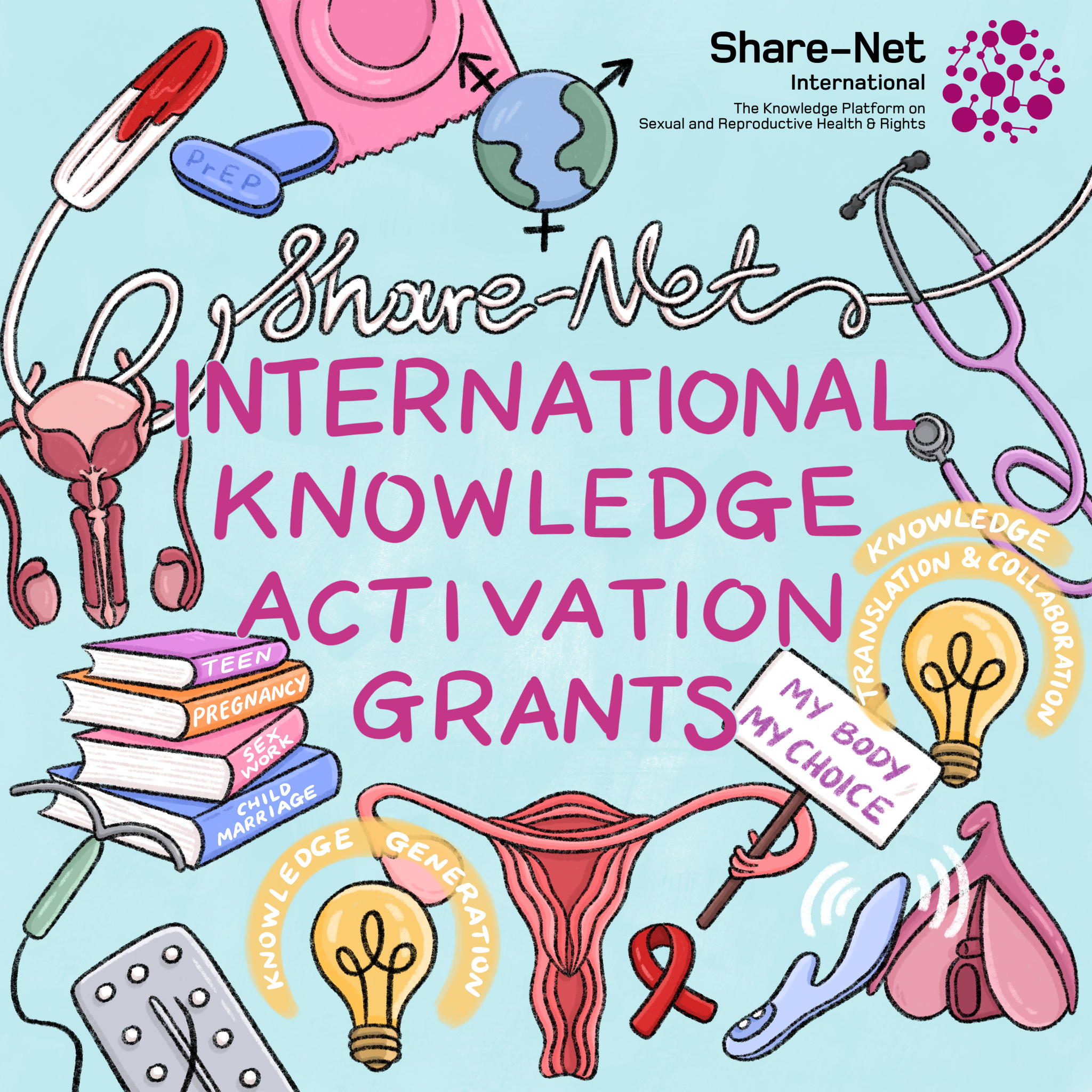Dear Share-Net International members,
It’s the moment you’ve been waiting for – our 2023 Knowledge Activation Grants are now open for applications! We have up to €250,000 worth of funding for SRHR projects available via our Knowledge Collaboration, Knowledge Translation, and Knowledge Activation grants, and we want to fund YOU!
Share-Net International is excited to announce that our 2023 grant-making round is open for applications from October 18, 2022! The 2023 Knowledge Activation Grants are open to all official Share-Net members, applications must be received by the deadline of November 15th, 2022, at 23:59 CET.
Our Knowledge Activation Grants
Our grants contribute to supporting knowledge management and production amongst our members. We aim to activate sexual and reproductive health and rights (SRHR) knowledge, supporting SRHR projects and communities that are often not prioritized or have limited access to SRHR funding, including young people, people with disabilities, LGBTI+, sex workers, and people of color. Our grants facilitate the uptake of knowledge, research, and documentation practices and influence practitioners and policymakers in the SRHR field. We believe that activating knowledge is a powerful tool to dismantle systems of oppression and uphold the sexual and reproductive rights embedded in the human rights frameworks adopted in most contexts.
Grant Types and Funding Available
We have three types of grants with varying scales of funding available, up to a maximum of €250,000 in total for all grants made in 2023. The upper limit of individual grants awarded is €25,000.
Type 1. Activation Grant – Knowledge Collaboration
Annual grant amount: up to €25.000 euros
Purpose: Contribute to creating knowledge product(s) for improving policy and practice in SRHR. This grant makes it possible for more than one organizational member of SNI to strategically formulate a sound proposal for the SRHR movement and other SNI network members. Ideally, collaborations are not meant for more than four organizations unless there is a strong justification.
Type 2. Activation Grant – Knowledge Translation
Annual grant amount: up to €10.000 euros
Purpose: Contribute to creating knowledge product(s) for improving policy and practice in SRHR. This grant makes it possible for one organizational member of SNI to formulate a valuable proposal for the SRHR movement and other SNI network members. In addition, with this grant, SNI wants its members to sensitize stakeholders on the SRHR issue of concern and provide a clear strategy for achieving that goal.
Type 3. Activation Grant – Knowledge Generation
Annual grant amount: up to €7.500 euros
Purpose: Contribute to funding research and documentation of practices in SRHR, particularly in contexts where there are knowledge gaps and limited knowledge about specific issues or affected communities. If ethical approval is required, this additional amount should be requested in the proposal and the maximum amount if needed. If funding allows a grant increase for ethical approval may be granted.
Eligibility and Selection Process
For detailed information about our eligibility criteria and the selection process, please see the grants guideline documentation.
Grants Information Q&A and write shop
You can find the pre-recorded grant information presentation in English here,
A grant information Q&A and write-shop will be held on 25th October 2022 to answer any specific questions about the grants, clarify any doubts that have concerning the call for proposals, and guide applicants on how to write a proposal for the Activation grants. You can find the event details here. Please do watch the information webinar first:
Grants Timeline
- 18 October 2022: Call for Proposals opens
- 25 October 2022: Grants Information Q&A and write shop
- 15 November 2022, at 23.59 CET: Deadline for Submissions
- 15 December 2022: Applicants are informed about the decision
- 10 February 2023: Grants are made
Grants Guidelines
Please click the links below to refer to our grant guide for detailed information about the grants and processes. The guide is available in Arabic, English, French, and Spanish

